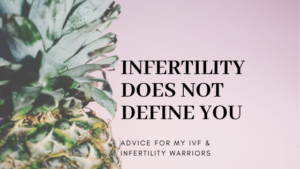So you have been diagnosed with Polycystic Ovary Syndrome (PCOS)? Don’t worry, it is possible to lose weight and get healthy inspite of it. Infact, it is all the more mandatory to do so, now that you have identified the issue! Please do consult your doctor for any major changes you are going to implement as each one has a different body, so the same list may not apply to all. But by and large, this should give you a start.
Firstly, what is pcos? Basically, it is a hormonal disorder causing enlarged ovaries with small cysts on it. Ladies with PCOS typically display symptoms like increased hair growth on body, weight gain, high cholesterol, thinning hair on scalp, and an irregular menstrual cycle, in some cases, fertility problems and depression.
What causes PCOS?
The cause of PCOS is not fully determined and can differ from person to person, but genetics, lifestyle and stress have been pointed out as likely factors.
How is PCOS diagnosed?
To diagnose PCOS, your gynecologist will
- Check for symptoms and also your menstrual cycles.
- Do tests to check hormone levels and a pelvic ultrasound to look for cysts on ovaries.
How is PCOS treated?
- Diet plays a crucial role in the management of PCOS, not just for weight loss, but also to regulate insulin levels. Many women with PCOS are resistant to insulin, resulting in the pancreas producing more insulin in order to be effective. High insulin levels create havoc on your body, leading to the above mentioned symptoms.
- Lifestyle changes
- Your doctor may prescribe a drug to control the symptoms.
Here are some of the general PCOS diet guidelines:
Avoid foods with:
- High GI (Glycemic Index) like mashed potatoes, muffins and cakes.
- Saturated, hydrogenated and trans fats from processed food and excess cooking oil.
Foods to Include:
- Green, leafy vegetables, fruits with low GI like cherries, plums, grapefruit, pears, apples, dried apricots, grapes, coconut, kiwi fruit, orange juice, prunes.
- Lean meat, if you do eat meat (avoid or limit red meat)
- Healthy fats are essential, usually found in nuts and seeds, fish, avocado and olive oil.
MANAGING INSULIN RESISTANCE
- Eat wholegrain foods instead of processed, refined foods.
- Eat foods high in fiber as they cause a controlled rise in insulin levels.
- Combine protein and carbohydrates as protein helps to regulate the blood sugar spike caused by the carbs.
- Eat small, healthy meals frequently to manage cravings and NEVER miss breakfast!
Do check out our 7 days and 14 days diet plans, which have been designed keeping all these guidelines in mind.
LIFESTYLE CHANGES:
Whilst diet is central to tackling PCOS, we must not forget other lifestyle changes that will help to overcome PCOS.
-Exercise regularly
-Manage stress levels
It is important that we understand that there is no magical formula that’s going to make us all better. But, by making these diet and lifestyle changes now, we can manage our symptoms and lead lives where we are happy with our bodies and the way we look.




